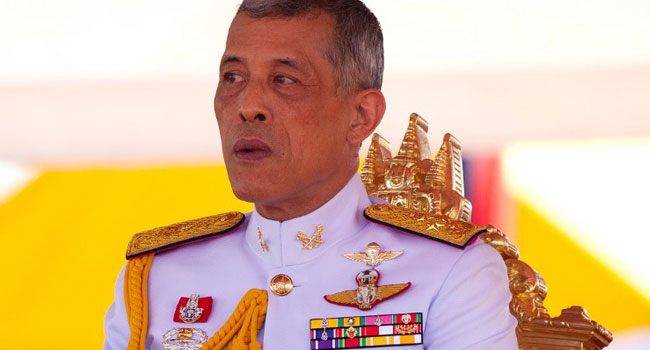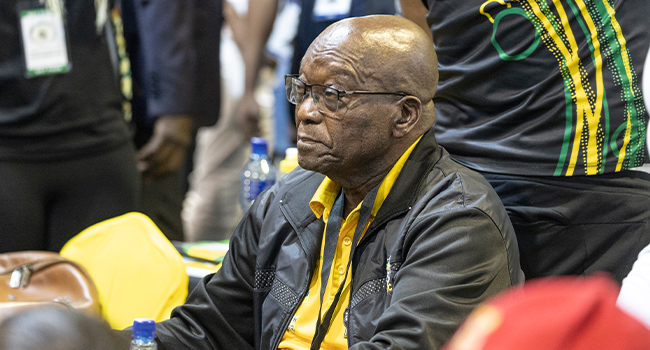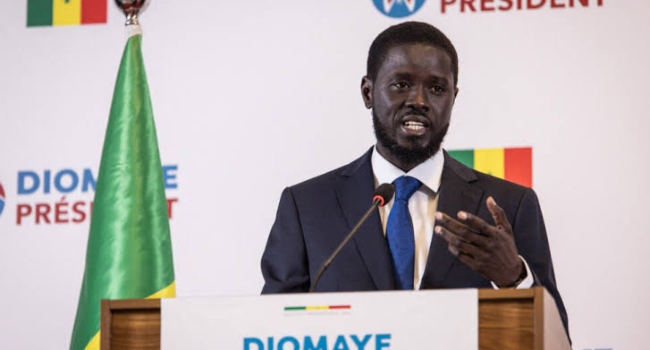
Thailand’s king has issued a royal decree endorsing the first general election since a 2014 coup, with a date for the long-delayed poll expected later Wednesday.
The election will be the first in the kingdom since the military toppled the administration of Yingluck Shinawatra, rewriting the constitution, muzzling all dissent and appointing key junta allies across the bureaucracy.
“It’s a suitable time to hold an election of members of parliament,” said the decree by 66-year-old King Maha Vajiralongkorn, published in the Royal Gazette on Wednesday and countersigned by junta leader Prayut Chan-O-Cha.
Thailand’s history is pockmarked by coups, short-lived civilian governments and political crises.
The junta had said polls would be held no later than the end of February, but the late signing by the king may mean the vote is held back for several weeks, with March 24 floated as a likely date.
The Election Commission said it will announce the election date on Wednesday afternoon.
The decree is set to ignite campaign season in a country where colourful and boisterous political rallies have often tipped into deadly violence.
The office of Prayut, who is also prime minister, called for an “environment of orderliness, civility and unity” — although violence is unlikely among a public wearied of political conflict.
An array of new parties — including some aligned to the military, others to the still powerful Shinawatra clan — have already begun meetings and recruitment as a blizzard of names are tossed up as likely future prime ministers.
Those include Prayut, who has spent months touring the country as he rebrands himself from a gruff man-in-Khaki to an avuncular civilian leader with a common touch.
Yet he is deeply unpopular among many Thais, who have wearied of his hectoring style as well as a junta accused of running down the economy and doing little to address graft, poor education standards and the kingdom’s chasmic social inequality.
Even if the junta’s rivals do well in elections, any new civilian government is expected to be hamstrung by the military-scripted constitution.
It allows for a fully appointed upper house and embeds 20-year strategies governing everything from the economy to education.
“You can call it hybrid democracy,” said Somjai Phagaphasvivat, a political analyst at Thammasat University.
Shinawatras still in the game?
Thailand last held an election in 2011.
That catapulted the then-political neophyte Yingluck, the younger sister of billionaire Thaksin Shinawatra, into office as head of the Pheu Thai party.
Questions remain over Pheu Thai’s enduring electoral pull among its vote banks in the poor, rural north and northeast without the star power of the brother-sister duo, both of whom are in self-exile.
Long years of junta rule have decimated the networks of the Thaksin-affiliated “Red Shirts”, while scores of key Pheu Thai politicos have been co-opted into the army-linked Phalang Pracharat party.
The Shinawatra clan sits at the core of Thailand’s political rupture.
Their supporters say they are the first political dynasty to address the aspirations of Thailand’s poor in a sharply hierarchical kingdom where wealth is hoarded by the Bangkok business elite.
To their enemies among the ultra-royalist, conservative elite, they toxified Thai politics and society with graft, nepotism and populist handouts.
Thaksin, a policeman-turned-telecom billionaire, was toppled by a coup in 2006 and went into self-exile in 2008 over a graft conviction.
Yingluck fled Thailand in August 2017 before she could be sentenced for criminal negligence linked to a rice subsidy scheme.
The siblings have crept back to prominence in step with the approach of elections.
Thaksin has launched a weekly podcast, sharing his views on everything from Bangkok’s pollution crisis to the global economy.
“He still figures in Thailand as a popular hope,” Chris Baker, a Thai history expert said, despite the “extraordinary myth” of the billionaire businessman as a kindred spirit of the common man.
The election is expected to be held before the coronation of Thailand’s king in early May.
It will also be the first poll since the death in late 2016 of the king’s revered father Bhumibol Adulyadej.



